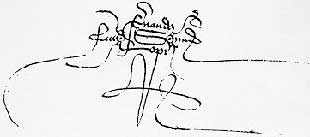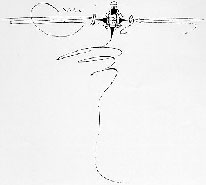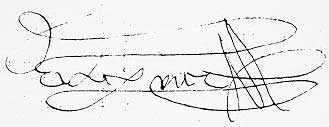
|
|
|
| History of Portuguese Literature | Origins of Portuguese Literature | The Portuguese Language | Oral Literature | Fiction | Lyricism |
| Travel Literature | Cantigas de amigo | Historiography | Doctrinal Prose | ||
Historiography
|
|
In
Portuguese historiography, we can distinguish three types of literary output,
which correspond to successive periods and are centred on the following works:
The
Books of Lineages (12-16C,
genealogical records of noble families, in which Portuguese literature was given
primacy, alternating history with legend). Three of these have survived: the
first including the “Legend of Gaia”, and the third, written by D. Pedro, Count of Barcelos, the bastard son of D. Dinis, including
a description of the Battle of Salado, which itself became quite famous. These
books were published in the work Portugaliae
Monumenta Historica by Alexandre
Herculano;
The
books written by the chroniclers. These
included, amongst others the Crónica
Geral de Espanha, written by D.
Pedro, Count of Barcelos in 1344, the writers Fernão Lopes, Gomes
Eanes de Zurara, with the Crónica da
Guiné, in 1453, Rui de Pina,
with the Crónica de D. João II, in
1545, João de Barros, with Décadas
da Ásia, as from 1552, Fernão Lopes
de Castanheda, with História do
Descobrimento e Conquista da Índia pelos Portugueses, as from 1551, and Damião de Góis, with Crónica
do Rei D. Manuel, as from 1566, amongst others. It
was the chroniclers who brought the systematised written organisation of a
discourse that was both concerned with the evolution of human events and aware
of the importance of facts and personalities in determining the specificity of a
civilisation and the need for its objective recording;
The written constitution of modern
history, which began during the period of Romanticism, with Alexandre Herculano, the voluminous author, who wrote História
de Portugal - a History of Portugal until the reign of D. Afonso III. Here,
the author used a conception of historical writing that respected the scientific
concern for rigour and exactness, recording the evolution of events from a
perspective that was based on the observation of social changes rather than the
simple succession of personalities and occurrences.
 Signature-autograph of Fernão Lopes |
 Signature-autograph of Gomes Eanes de Zurara |
 Signature-autograph of Rui de Pina National Archives/Torre do Tombo |
 Signature-autograph of João de Barros |
 Signature-autograph of Fernão Lopes de Castanheda |
 Signature-autograph of Damião de Góis |
|
Coming
from a later generation was the writer Oliveira
Martins (1845-1894), whose work, within the context of Portuguese
literature, represents the blending of literary inspiration with
historical objectives, as, for example, in such works as Portugal Contemporâneo, 1881, and Os Filhos de D. João I, 1891. The progressive and decisive
diversification between historical sciences and literary creativity has
meant that the most important figures in contemporary historiography have,
generally speaking, moved away from anything that might be understood in
its most restricted sense as a work
of literature. |
 |
© Instituto Camões, 2001